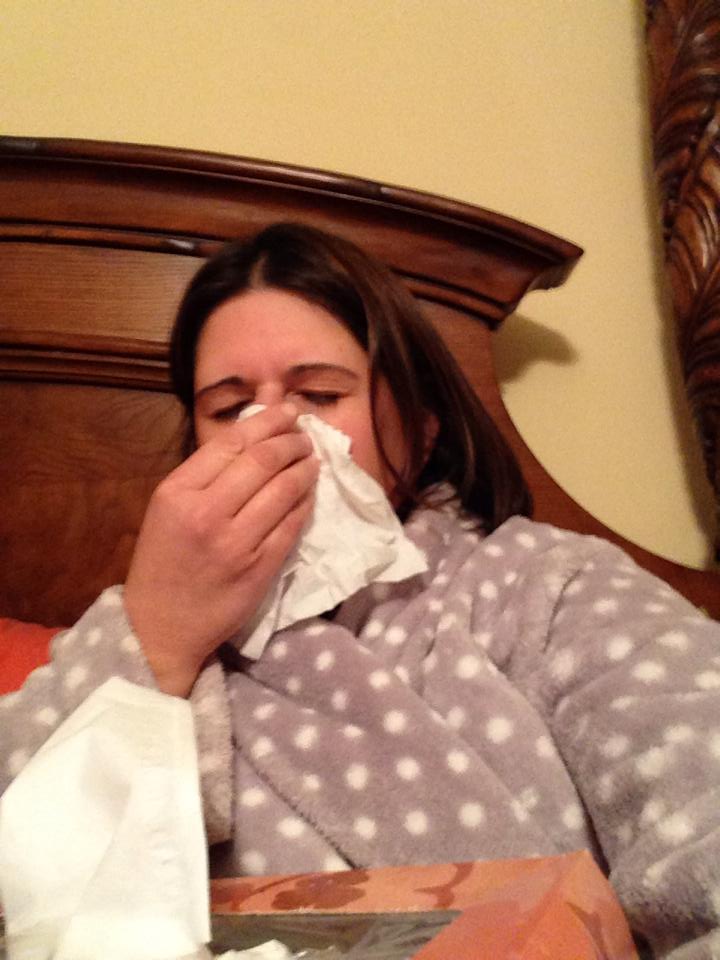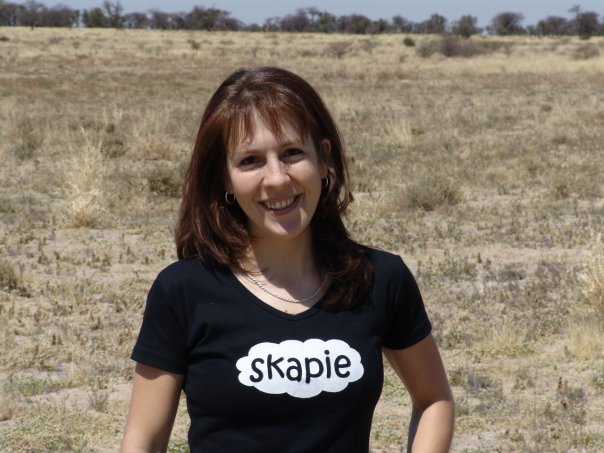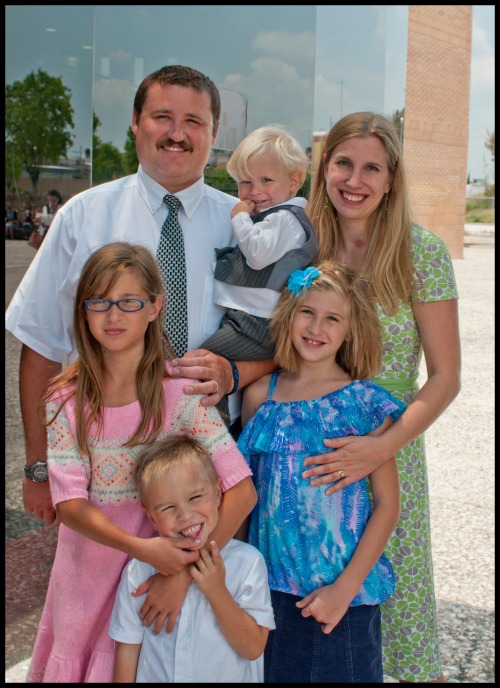by Mama B (Saudi Arabia) | Nov 26, 2014 | Adolescence, Awareness, Boys, Brothers, Culture, Education, Eye on Culture, Family, Gender, Girls, Husband, International, Life Lesson, Motherhood, Older Children, Parenting, Puberty, Relationships, Saudi Arabia, School, Teenagers, Womanhood, World Motherhood
I grew up in a house full of girls with one baby brother, who was so much younger than me that our friends and social lives didn’t overlap.
Now that I am the mother of three boys and one girl, I am learning many things I never knew about boys: they are more straightforward, easier to read, and, honestly, easier to persuade than girls. Boys wrestle–a lot. Even when they haven’t got the hang of walking yet, they wrestle. (I still don’t know why.) Boys are more emotional than I expected, and more sensitive.
I know there’s a lot more to learn about raising boys, and I’m excited to do it–especially because I can call in their father whenever something freaks me out.
Despite my growing expertise in raising boys, something recently caught me off guard. Something obvious in our society, but not so prevalent in my ‘tribe’ (which is what I call my close family–mother, father, aunts, uncles, cousins, etc.).
My eldest turned 11 this year, and is in the phase between boy and teenager. And I find myself surprised to discover that our society’s segregation of men and women is changing my relationship with my own son.
I was totally unprepared for the separation that occurred when he moved from the little school to the big school. I went from being able to walk into his class, to speak to his teacher, and to meet his friends and their moms, to having to drop him off and pick him up outside the school gate (but not right in front of it, where the other boys could see us).
No more going into the school, unless I make an appointment with the headmaster and go to his office to speak with the teachers. (And even that is not permissible in most boys’ schools, the majority of which would not even allow a woman on the premises. The same is true for girls’ schools, which don’t permit men on the premises.)
My son can no longer go into the all-women area of the malls. In a few years, he won’t be allowed in any area of the mall without a ‘family’ for fear he will terrorize the girls. (Ironically, some young teenagers wait outside the malls and approach older women, or women with children, and ask them to pretend they are one family to gain entrance into the mall.)
Soon, my son won’t invite his friends over when his sister is home, although he could still invite cousins and close family friends.
There are so many unwritten rules concerning the separation of girls and boys, and a million variations. For some families, it’s pretty black and white: unless he is your brother or father, or unless she is your sister or mother, you don’t spend time with them. It also depends upon the region. In the eastern or western provinces, strict segregation is not as prevalent as it is here in the central region. In seacoast areas, people have the benefit of interacting with many cultures, and are therefore more forgiving.
I am baffled by how our society has become so segregated. Throughout the early history of Islam, segregation wasn’t practiced. Modesty and chastity, yes. Total segregation, no. I do not even think it was part of our culture as Saudis. At least, not to the extent it is today.
Until recently, Bedouin women were expected to welcome travelers into their tents, and to make them coffee, and even dinner, regardless of whether her husband was there. Yes, most would have had their faces covered (again, a cultural custom, not religious one), but they interacted with men all the time. It’s only in recent years that things have changed. Some put it down to the influences that came into Saudi when it was united. Others say it is a reaction to how fast we were exposed to the outside world, and how quickly we went from tribal life to modern-day life.
Theories aside, I’m facing the reality of being shut out of a part of my son’s life and of him being shut out of mine.
When I explained my concern to one of his teachers (over the phone) he said, “You can’t follow him around all of his life!” As if I were a stalker! Am I being a stalker? Hmmm, I wonder how involved I would be in his day-to-day school life if I were?
My biggest fear is that if he gets caught up in the wrong crowd, segregation makes it easier in certain houses with absent fathers to make mistakes and do stupid stuff. I thank God his father keeps an eye on him, and that he still fills me in about his day and talks to me when he is upset. If we can continue to talk, I think I may be okay.
Perhaps I just don’t like not being in control of the situation, or perhaps it’s that I don’t have the choice.
Would you naturally step back from your son’s day-to-day life when he turns 11 or 12? Would you withdraw from knowing his friends and supervising his outings?
It’s all foreign territory for me now, and I am learning to deal with it as best I can.
This is an original post to World Moms Blog from our contributor in the Kingdom of Saudi Arabia and mother of four, Mama B.
Photo credit: Dr. Coop under Flickr Creative Commons License

Mama B’s a young mother of four beautiful children who leave her speechless in both, good ways and bad. She has been married for 9 years and has lived in London twice in her life. The first time was before marriage (for 4 years) and then again after marriage and kid number 2 (for almost 2 years). She is settled now in Riyadh, Saudi Arabia (or as settled as one can be while renovating a house).
Mama B loves writing and has been doing it since she could pick up a crayon. Then, for reasons beyond her comprehension, she did not study to become a writer, but instead took graphic design courses. Mama B writes about the challenges of raising children in this world, as it is, who are happy, confident, self reliant and productive without driving them (or herself) insane in the process.
Mama B also sheds some light on the life of Saudi, Muslim children but does not claim to be the voice of all mothers or children in Saudi. Just her little "tribe." She has a huge, beautiful, loving family of brothers and sisters that make her feel like she wants to give her kids a huge, loving family of brothers and sisters, but then is snapped out of it by one of her three monkeys screaming “Ya Maamaa” (Ya being the arabic word for ‘hey’). You can find Mama B writing at her blog, Ya Maamaa . She's also on Twitter @YaMaamaa.
More Posts
by Aisha Yesufu | Nov 19, 2014 | 2014, Africa, Awareness, Being Thankful, Education, Family, Life Lesson, Motherhood, Nigeria, Parenting, Priorities, Responsibility, World Motherhood
 Taking responsibility for our actions is not always easy to do. It is funny how you see someone go on about the enemies in her life, who have denied her the success she so deserves.
Taking responsibility for our actions is not always easy to do. It is funny how you see someone go on about the enemies in her life, who have denied her the success she so deserves.
People spend more of their time and prayers focused on their enemies than on themselves. They cast and bind those enemies. They go to all lengths to unravel their enemies when all they need do is stand in front of the mirror and recognize the enemy before them. When we blame others, we become our own enemies.
We should learn always to take responsibility for our actions. When we take responsibility for our actions, it means the solution lies within us, but when we blame somebody else, it means that only the other person can find a solution to the issues.
If you fail at anything, accept it; learn from it. If you do not get a promotion, or even lose a job, find out what you did wrong. Learn from it to help you get the next promotion or to keep the next job. Do not blame your boss, your stepmother, half-brother or sister, the old woman in your village, your neighbor, your in-laws or the most-blamed devil. Just accept responsibility.
If we are not taught to take responsibility as children, we grow into adults who won’t take responsibility. Most of us struggled to get where we are today, and we want to protect our kids from the struggles of life–forgetting it was those struggles that helped make us who we are.
As parents, we have to allow our kids to be responsible for their actions. We have to allow them learn from their mistakes. There is no ideal world. They have to learn from the UNIVERSITY OF HARD KNOCKS i.e., LIFE. We cannot protect them from life; we have to allow them to live life.
A friend, whose 2-year-old son had broken his favourite cup, went to great lengths to find him a replacement, even to the extent of meeting the person who had given him the cup as a party favour.
I pointed out to her the need for allowing her child to be responsible for his actions. He breaks his cup, he loses it, and he learns that to keep a cup, he has to be careful with it.
I pointed out that unless there is a place where one can total one’s car and walk in and get a replacement free of charge, then she should let him learn by not providing a replacement.
Failure, they say, is not falling down. It is staying down.
People who take responsibility for their actions learn from their failures, and you rarely see them complaining. They are the ones who look as if everything goes smoothly for them. They never seem to have any problems.
So, the next time you feel the urge of blaming anyone else or making excuses why something is not going the way you want, just remember when you blame another you take away the power of solution from your hands.
This is an original post to World Moms Blog from our new writer in Nigeria, Aisha Yesufu.

by Nicole Melancon (USA) | Nov 18, 2014 | Family, Health, Social Media, Third Eye Mom
 As a mother of two, I always take the necessary precautions to ensure that my children are happy and healthy. As a family, we eat healthy food, get lots of exercise and sleep and every fall we get our flu shot. There is a lot of debate and myths regarding the pros and cons of getting the flu vaccine and surprisingly only 50% of Americans get vaccinated against the flu every year. It shocks me because getting vaccinated not only keeps you protected against getting a severe, life-threatening form of the flu, it also provides protection against passing it on to someone else who may not be so lucky.
As a mother of two, I always take the necessary precautions to ensure that my children are happy and healthy. As a family, we eat healthy food, get lots of exercise and sleep and every fall we get our flu shot. There is a lot of debate and myths regarding the pros and cons of getting the flu vaccine and surprisingly only 50% of Americans get vaccinated against the flu every year. It shocks me because getting vaccinated not only keeps you protected against getting a severe, life-threatening form of the flu, it also provides protection against passing it on to someone else who may not be so lucky.
Per the World Health Organization:
Although difficult to assess, annual flu epidemics are thought to result in between three and five million cases of severe illness and between 250,000 and 500,000 deaths every year around the world. Most deaths currently associated with influenza in industrialized countries occur among the elderly over 65 years of age.
On average, 20,000 people die in the United States each year due to complications from the flu. While some years the flu deaths are much less severe – only a few thousand – other years as many as 40,000 Americans die. Where the world is utterly obsessed with the thought of getting ebola in which there is currently no vaccine, millions do not get the flu vaccine which can save lives.
I am such a strong supporter of the flu vaccine but understand that there are many people out there who believe false myths or don’t fully understand the benefits of getting yourself and your family vaccinated each year. Last week, I had the honor of speaking with Dr. Leonard Friedland an expert on infectious diseases and immunization. He is a licensed pediatrician and former Division Chief for Pediatric Emergency Medicine at Temple University School of Medicine.
Here are some of the facts and myths of the flu vaccine and why it should matter to you and your family (all facts provided by the CDC):
What exactly is the flu?
The seasonal flu is a contagious respiratory illness caused by flu viruses. It spreads between people and can cause mild to severe illness. In some cases, the flu can lead to death. In the United States, flu season occurs in the fall and winter. Seasonal flu activity usually peaks in January or February, but it can occur as early as October and as late as May.
How is the flu spread?
Most experts believe that you get the flu when a person with the flu coughs, sneezes, or talks and droplets containing their germs land in your mouth or nose. You can also get the flu by touching a surface or object that has the flu virus on it and then touching your mouth, eyes, or nose.
Is the flu different than a cold?
Yes, the flu is much more series than a common cold and extremely contagious. A flu usually involves the following symptoms:
- Fever* or feeling feverish/chills
- Cough
- Sore throat
- Runny or stuffy nose
- Muscle or body aches
- Headaches
- Fatigue (tiredness)
- Some people may have vomiting and diarrhea, though this is more common in children than adults.
* It’s important to note that not everyone with flu will have a fever.
What are the negative consequences of getting the flu?
Flu is a severe infection. If you have ever had full-blown influenza (like I did several years ago) it is absolutely miserable and can be extremely serious. Hundreds of thousands of people are hospitalized each year due to complications of the flu and unfortunately thousands die. The flu also causes many work and school days missed. The WHO estimates that recent estimates put the cost of influenza epidemics to the economy at US$ 71-167 billion per year in the United States alone.
Who needs to get vaccinated?
The U.S. Centers for Disease Control and Prevention (CDC) recommends that almost everyone six months and older get a flu vaccination each year. It is important to note that even if you are healthy you should get a vaccine.
Seniors (over 65) are especially encouraged to get a flu vaccine every year since people over 65 make up 90% of all deaths due to complications from the flu. Pregnant mothers, children under five years of age (and over 6 months) and anyone with a comprised immune system and/or other medical conditions is highly encouraged to get vaccinated.
What are some of the misperception regarding the flu vaccine?
- A common misperception is that the flu is just like having a cold. This is not true as the flu can become much more serious and cause death.
- Belief that the flu vaccine itself can cause flu. FALSE.
Per the CDC:
A flu vaccine cannot cause flu illness. Flu vaccines that are administered with a needle are currently made in two ways: the vaccine is made either with a) flu vaccine viruses that have been ‘inactivated’ and are therefore not infectious, or b) with no flu vaccine viruses at all (which is the case for recombinant influenza vaccine). The nasal spray flu vaccine does contain live viruses. However, the viruses are attenuated (weakened), and therefore cannot cause flu illness. The weakened viruses are cold-adapted, which means they are designed to only cause infection at the cooler temperatures found within the nose. The viruses cannot infect the lungs or other areas where warmer temperatures exist.
While a flu vaccine cannot give you flu illness, there are different side effects that may be associated with getting a flu shot or a nasal spray flu vaccine. These side effects are mild and short-lasting, especially when compared to symptoms of bad case of flu (For flu shot, side effects may include soreness, redness, or swelling where the shot was given, low-grade favor and or aches. For the nasal spray, side effects from the nasal spray may include runny nose, wheezing, headache, committing, muscle aches, fever).
- It is also important to note that the flu vaccine can take up to two weeks to be fully effective meaning that a person may come down with the flu during that time period or even get a cold and mistakenly believe it is from receiving the flu shot.
I got the flu vaccine but still got influenza? Did the flu vaccine not work?
It is important to note that each year, flu vaccines are made months before flu season each year based on scientific research that determines what strains are most prevalent. Therefore, the flu vaccine is not 100% effective against all strains of the flu. However, it is still highly recommended that you get vaccinated each year because if you do get the flu, it is most likely will be a much less severe form that if you had not been vaccinated at all.
I am not convinced that I should get the flu vaccine. I never get sick.
As a society, I believe it is important to think of everyone else around us. The flu is highly contagious and even if you don’t mind getting miserably sick, how would you feel if you passed it onto a child, a senior or someone with a comprised immune system who dies from it? I personally could never live with that myself.
Can I still get vaccinated?
Yes! The flu season is just beginning and there is still time to get you and your family vaccinated. Most pharmacies, health clinics and doctors offices provide the flu shot and mist. Go to www.flu.gov to find the clinic nearest you.
Want to learn more?
Check out the CDC website for more information on the flu by clicking here. You can also go to www.flu.gov to track where the flu has hit, where to get vaccinated and any additional facts you would like to know.
The bottom line: The single best thing we can do to protect our family and other people is to get vaccinated!
Additional stats from the CDC:
- A recent study* showed that flu vaccine reduced children’s risk of flu-related pediatric intensive care unit (PICU) admission by 74% during flu seasons from 2010-2012.
- One study showed that flu vaccination was associated with a 71% reduction in flu-related hospitalizations among adults of all ages and a 77% reduction among adults 50 years of age and older during the 2011-2012 flu season.
- Flu vaccination is an important preventive tool for people with chronic health conditions. Vaccination was associated with lower rates of some cardiac events among people with heart disease, especially among those who had had a cardiac event in the past year. Flu vaccination also has been shown to be associated with reduced hospitalizations among people with diabetes (79%) and chronic lung disease (52%).
- Vaccination helps protect women during pregnancy and their babies for up to 6 months after they are born. One study showed that giving flu vaccine to pregnant women was 92% effective in preventing hospitalization of infants for flu.
- Other studies have shown that vaccination can reduce the risk of flu-related hospitalizations in older adults. A study that looked at flu vaccine effectiveness over the course of three flu seasons estimated that flu vaccination lowered the risk of hospitalizations by 61% in people 50 years of age and older.
Did you get your flu shot?
This is an original post written for World Moms Blog by Nicole Melancon of Third Eye Mom.

Third Eye Mom is a stay-at-home mom living in Minneapolis, Minnesota with her two children Max (6) and Sophia (4). Her children keep her continually busy and she is constantly amazed by the imagination, energy and joy of life that they possess! A world wanderer at heart, she has also been fortunate to have visited over 30 countries by either traveling, working, studying or volunteering and she continues to keep on the traveling path.
A graduate of French and International Relations from the University of Wisconsin Madison, where she met her husband Paul, she has always been a Midwest gal living in Minnesota, Wisconsin and Chicago. This adventurous mom loves to be outside doing anything athletic (hiking, running, biking, skiing, snowshoeing or simply enjoying nature), to travel and volunteer abroad, to write, and to spend time with her beloved family and friends.
Her latest venture involves her dream to raise enough money on her own to build and open a brand-new school in rural Nepal, and to teach her children to live compassionately, open-minded lives that understand different cultures and the importance of giving back to those in need. Third Eye Mom believes strongly in the value of making a difference in the world, no matter how small it may be. If there is a will, there is a way, and that anything is possible (as long as you set your heart and mind to it!).
Visit her on her blog, Thirdeyemom, where she writes about her travels and experiences in other lands!
More Posts

by Ecoziva (Brazil) | Nov 12, 2014 | 2014, Awareness, Brazil, Childhood, Cultural Differences, Entertainment, Family, International, Kids, Life Lesson, Milestones, Moving, Nutrition, Relationships, Stress, Tragedy, World Motherhood
This is the second post of a two-part series. To read part I of this post, please click here
 It was my fourth birthday party. Since we were moving to Brazil soon, it was also a farewell party, and a big one. It was the only big birthday party I have had in my entire life. I remember it was held at some sort of club, there were a lot of people and a hired caterer (something almost unthinkable for my mother!) And then there was the clown. And he wanted to paint my face.
It was my fourth birthday party. Since we were moving to Brazil soon, it was also a farewell party, and a big one. It was the only big birthday party I have had in my entire life. I remember it was held at some sort of club, there were a lot of people and a hired caterer (something almost unthinkable for my mother!) And then there was the clown. And he wanted to paint my face.
I was completely and irrationally terrified as only a four-year-old can be. While most of the other children were loving it all, I wanted nothing to do with the clown and his face paint (and certainly not on my face!). My party was ruined. In fact, I hid in the kitchen the entire time.
I don’t know exactly who stayed with me in the kitchen, but I don’t think it was either of my parents – at least not all of the time. Of course they were probably running around organizing things and tending to the guests. What really comforted me at that moment was the food, more specifically the dozens of intricately decorated mini-ice cream cakes. I recall later telling someone that the good side of the party was that I had stayed close to the food the entire time.
Although I hadn’t thought of it in a while, this story is not something that had been forgotten or hidden in my mind, as it has been told and retold over the years by my mother. The interesting detail that came up now was that of the ice cream cakes. When I remembered the ice cream cakes I felt like I could eat a ceiling-high pile. I felt like I had been looking for them my entire life. It was such a visceral craving it felt like nothing else could fill up my void except for those ice cream cakes. Right now writing this I want those ice cream cakes so badly it almost hurts.
It is interesting because here in Brazil ice cream cakes are rare – I believe I have only seen them for sale once in the more than 30 years I have lived here. I don’t know why this particular detail only came up so strongly now, nor what has been triggering this strong need for comfort and protection, which originally was a need to be shielded from someone scary (the clown) who wanted to do something I did not want to do (paint my face).
I don’t know if this is related, but it is also funny because I was never a big fan of makeup. Also, once when I was six and went through a brief period of interest for makeup, I got a kit of child makeup and ate several of the flavored lipsticks that came with it!
Perhaps this story will bring about significant change in my relationship with food, perhaps not, but it does bring up several issues related to my relationship with my own children.
For instance, it has reminded me that no matter how I try, it is impossible to protect them from every traumatic incident or foresee the lasting effect of seemingly small events on their lives. On the other hand, it is also a strong reminder not to belittle the things that upset them – what might seem insignificant or minor to me may be a huge deal to them and I must give them the best emotional support we can at all times.
Please share your stories about your relationship with food. Do you interfere in your children’s relationship with food? Do you actively foster a healthy relationship with food in your home?
This is the continuation of an original post to World Moms Blog published by our writer in Brazil and mother of three, EcoZiva. You can read Part I here.
The image in this post is credited to Chris Martin. It holds a Flickr Creative Commons attribution license.
Eco, from the greek oikos means home; Ziva has many meanings and roots, including Hebrew (brilliance, light), Slovenian (goddess of life) and Sanskrit (blessing). In Brazil, where EcoZiva has lived for most of her life, giving birth is often termed “giving the light”; thus, she thought, a mother is “home to light” during the nine months of pregnancy, and so the penname EcoZiva came to be for World Moms Blog.
Born in the USA in a multi-ethnic extended family, EcoZiva is married and the mother of two boys (aged 12 and three) and a five-year-old girl and a three yearboy. She is trained as a biologist and presently an university researcher/professor, but also a volunteer at the local environmental movement.
More Posts

by Karien Potgieter | Nov 5, 2014 | 2014, Africa, Being Thankful, Exercise, Family, Health, Kids, Life Balance, Motherhood, Nutrition, Parenting, Priorities, Running, Siblings, South Africa, Working Mother, World Moms Blog Writer Interview, World Motherhood, Writing
 Where in the world do you live? And, are you from there?
Where in the world do you live? And, are you from there?
I live in Kimberley, the diamond capital of South Africa. Kimberley is a smallish, dusty town that gets extremely hot in summer – living here sometimes requires a good sense of humour, ha! I was born and raised just a short distance from here – in Bloemfontein in Central South Africa.
What language(s) do you speak?
Our home language is Afrikaans, but I’m fluent in English as well. South Africa has 11 official languages, plus a number of unofficial ones, so I’m really far behind as far as that goes!
When did you first become a mother?
I was blessed with a beautiful, peaceful little girl at the beginning of 2012 at the age of 34. My son, a busy, happy little guy, was born 22 months later at the end of 2013. It’s been an overwhelming, busy and blessed two-and-a-half years – what an amazing adventure!
Is your work: stay-at-home mom, other work at home or do you work outside the home?
I’m in the very privileged position to work from home as an ecologist. I feel extremely blessed to be able to be here for my kids all day (we have a nanny who looks after them while I work) and be able to do a job that I love.
Why do you blog/write?
Writing is my passion – I love, love, love it! Combining writing with my other passions, namely my kids, running and healthy living, is pure bliss.
How would you say that you are different from other mothers?
I’m quite a health nut! At the age of two-and-a-half my daughter has never seen or tasted something like a soda and very rarely eats junk food – we just don’t keep it in our house. She and her brother both love fruits and veggies – perhaps because it’s all they know? I also love running with both kids in our double jogging stroller – it’s one of our favourite things to do!
What do you view as the challenges of raising a child in today’s world?
There are so many! Keeping them safe in a country known for its high crime rate; teaching them to value and accept themselves in a society where pressure is immense to be and look a certain way; teaching them to respect others in a world where respect for others is on the decline; teaching them to be active and take care of their bodies in a world where technology makes everything so easy… The list goes on and on. Only by grace!
How did you find World Moms Blog?
I love reading about other mothers’ experiences on this crazy adventure called motherhood. An online search led me to World Moms Blogs, where I’ve found so many inspirational stories about moms from all over the globe – I love it!
This is an original, interview post for World Moms Blog from our new writer in South Africa and mum of 2, Karien Potgieter. You can read more about Karien’s running adventures through life at her personal blog: Running the Race
Karien Potgieter is a full-time working mom of two toddlers. She has a master’s degree in ecology and works in the conservation sector in beautiful South Africa. Her other big passion, apart from her family and caring for the environment, is running. To date she’s participated in races on three continents and in six countries and she dreams of travelling to and running in many, many more. You can follow her and her family’s running adventures on her blog, Running the Race (http://www.runningtherace.co.za).
More Posts - Website
Follow Me:





by Tina Marie Ernspiker | Oct 31, 2014 | 2014, Health, Home, Husband, International, Kids, Life Balance, Living Abroad, Mexico, Motherhood, Moving, Travel, World Motherhood
 “I was not born for one corner; the whole world is my native land.” -Seneca
“I was not born for one corner; the whole world is my native land.” -Seneca
I don’t just believe this quote. I feel it. I am in love with our beautiful planet. The world is a gift filled with life, adventure, and beauty. Wonderful things await those who are willing to travel and experience this gift firsthand. I want these things for my children. I want them to have friends in every land and favorite places across the sea; to taste new flavors, see new sights, and hear new sounds; to know that this world was made for them, borders can be crossed, different is good, and change can open up doors. I want to broaden their horizons and open their minds to this gift, this world… our native land. (more…)













 “I was not born for one corner; the whole world is my native land.” -Seneca
“I was not born for one corner; the whole world is my native land.” -Seneca






